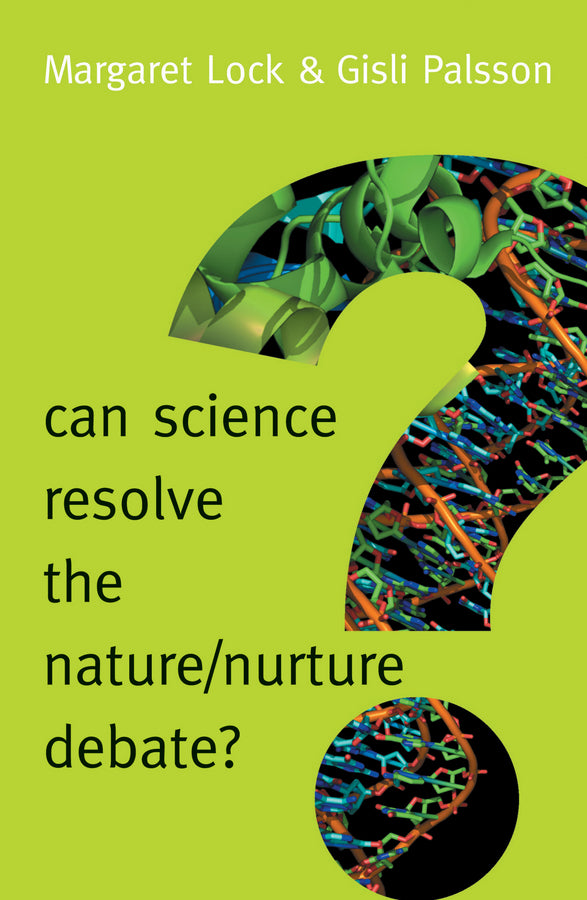Description
Can Science Resolve the Nature / Nurture Debate? delves into the complex discussion of how both genetics and environment shape our identities. This groundbreaking book emphasizes how the groundbreaking research in epigenetics has transformed our understanding of gene expression, showing that our cellular environment and experiences play a critical role in determining who we are. With insights from notable anthropologists Margaret Lock and Gisli Palsson, this book provides a comprehensive analysis of the evolving nature/nurture debate, from its origins in Classical philosophy to the latest scientific developments. Through vivid examples and in-depth research, readers will discover how our understanding of genetics intersects with environmental influences, impacting health, behavior, and wellbeing. The thought-provoking discussions make it an essential read for those interested in the interplay between genes and environment, the implications for personal identity, health sciences, and social behavior. A must-have for educators, students, and anyone curious about the ongoing nature/nurture debate.
Note: Shipping for this item is free. Please allow up to 6 weeks for delivery. Once your order is placed, it cannot be cancelled.
Condition: BRAND NEW
ISBN: 9780745689975
Year: 2016
Publisher: John Wiley & Sons (UK)
Pages: 160
Note: Shipping for this item is free. Please allow up to 6 weeks for delivery. Once your order is placed, it cannot be cancelled.
Condition: BRAND NEW
ISBN: 9780745689975
Year: 2016
Publisher: John Wiley & Sons (UK)
Pages: 160
Description:
Following centuries of debate about "nature and nurture" the discovery of DNA established the idea that nature (genes) determines who we are, relegating nurture (environment) to icing on the cake.
Since the 1950s, the new science of epigenetics has demonstrated how cellular environments and certain experiences and behaviors influence gene expression at the molecular level, with significant implications for health and wellbeing. To the amazement of scientists, mapping the human genome indirectly supported these insights. Anthropologists Margaret Lock and Gisli Palsson outline vituperative arguments from Classical times about the relationship between nature and nurture, furthered today by epigenetic findings and the demonstration of a "reactive genome." The nature/nurture debate, they show, can never be put to rest, because these concepts are in constant flux in response to the new insights science continually offers.
Note: Shipping for this item is free. Please allow up to 6 weeks for delivery. Once your order is placed, it cannot be cancelled.
Condition: BRAND NEW
ISBN: 9780745689975
Year: 2016
Publisher: John Wiley & Sons (UK)
Pages: 160
Note: Shipping for this item is free. Please allow up to 6 weeks for delivery. Once your order is placed, it cannot be cancelled.
Condition: BRAND NEW
ISBN: 9780745689975
Year: 2016
Publisher: John Wiley & Sons (UK)
Pages: 160
Description:
Following centuries of debate about "nature and nurture" the discovery of DNA established the idea that nature (genes) determines who we are, relegating nurture (environment) to icing on the cake.
Since the 1950s, the new science of epigenetics has demonstrated how cellular environments and certain experiences and behaviors influence gene expression at the molecular level, with significant implications for health and wellbeing. To the amazement of scientists, mapping the human genome indirectly supported these insights. Anthropologists Margaret Lock and Gisli Palsson outline vituperative arguments from Classical times about the relationship between nature and nurture, furthered today by epigenetic findings and the demonstration of a "reactive genome." The nature/nurture debate, they show, can never be put to rest, because these concepts are in constant flux in response to the new insights science continually offers.

